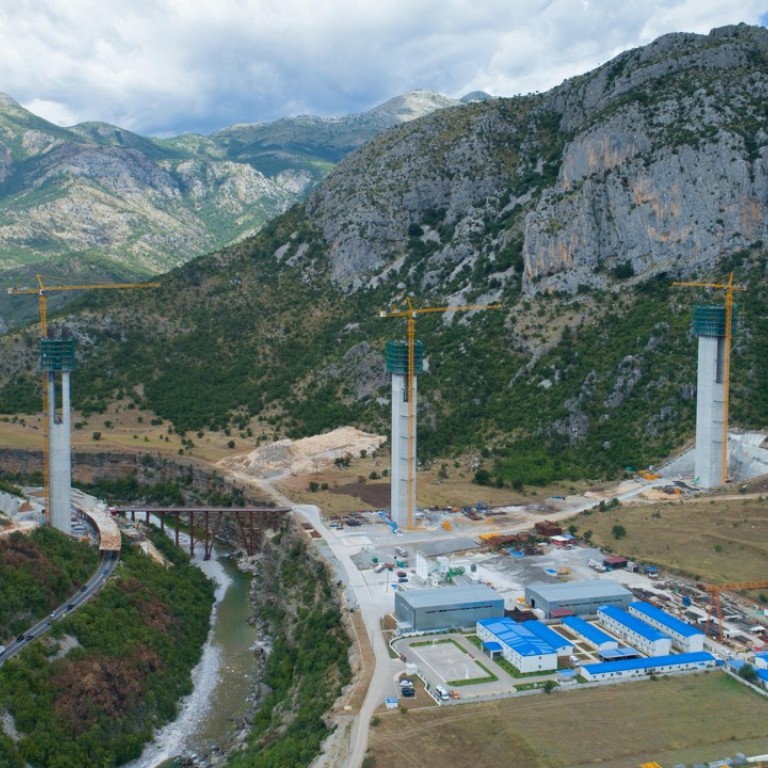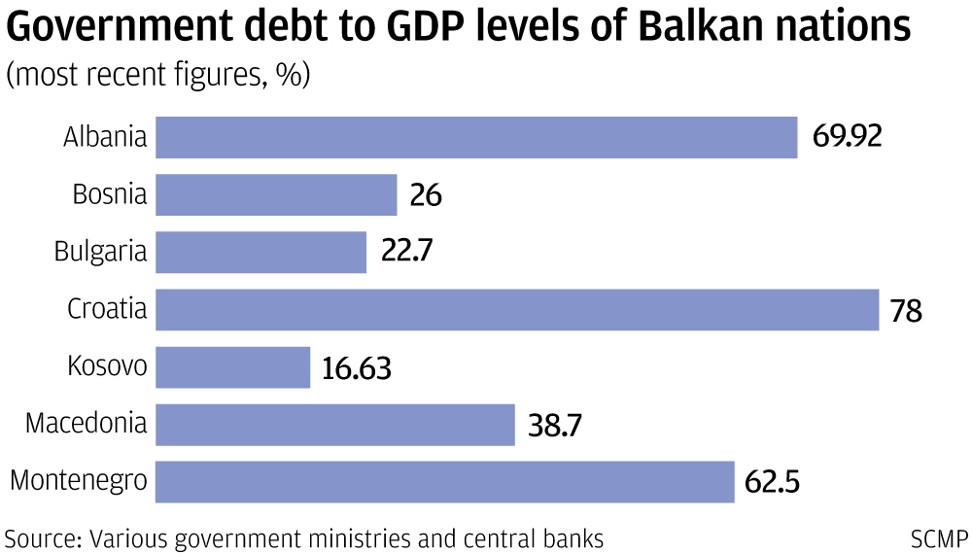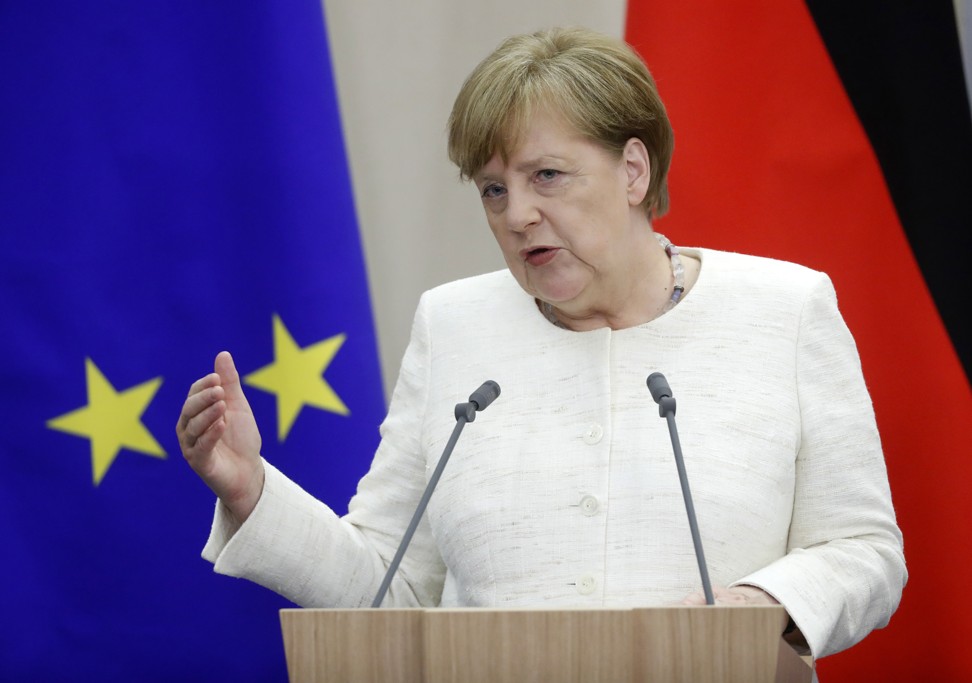
Is China’s investment in infrastructure projects driving Western Balkan nations into debt?
IMF says Beijing-led projects under the ‘Belt and Road Initiative’ are partly to blame for economic problems in the region
Western Balkan nations are facing a growing debt risk, and China-led infrastructure development projects are partly to blame, the International Monetary Fund warned this week.
One example, according to an IMF report released on Monday, is Montenegro, which although having a relatively strong economy is coming under growing debt pressure.
The first phase of the scheme was financed with loans from China’s Export-Import Bank between 2015 and 2017, which “had a key role in raising debt to high levels”, and has cost the country nearly a quarter of its gross domestic product, the report said.
In an effort to service the loans, the government of Montenegro last year slashed its public welfare spending, cut wages for government employees and introduced tax increases on cigarettes, coal and ethyl alcohol.
The report said that without the highway project, the fiscal adjustment would not have been necessary, and the country’s debt would “have declined to 59 per cent of GDP in 2019 instead of rising to 78 per cent”.
The IMF now considers China Export-Import Bank “an important new creditor” of Montenegro.
The Bar-Boljare highway is one of dozens of projects being developed under President Xi Jinping’s pet belt and road plan to promote intercontinental trade and infrastructure links. The plan has already sparked concern in Europe over the debt problems it is accused of creating, and fears China is using its huge financial influence to divide the European Union.
On Thursday, German Chancellor Angela Merkel and her fellow EU leaders met the heads of six Western Balkan nations in Sofia.
During the discussions, Merkel recognised the countries’ efforts on working towards EU membership, but refused to commit to EU Commission President Jean-Claude Juncker’s ambitious goal of membership for all of them by 2025.
Merkel is expected to raise the issue of the “Belt and Road Initiative” during her two-day visit to China, which starts on Thursday.
On a trip to the Balkans in February, the German leader warned about China’s growing influence in the region, saying that while she welcomed Beijing’s investment, she questioned whether it was linked to a political agenda.
Meanwhile, an IMF monitoring report on Albania published on Tuesday called on the country to redouble its efforts to reduce its high public debt.
While Beijing has limited involvement in Albania’s public finances, China Everbright Group owns Tirana International Airport, while other Chinese companies hold stakes in the country’s oilfields.
China and Albania have agreed to expand their cooperation, and while on a visit to the European country last year, Beijing officials encouraged Tirana to speed up the signing of a memorandum of understanding on the belt and road plan.
She also announced the launch of the China-IMF Capacity Development Centre, which aims to provide support with institution building, policymaking and macro-financial training to countries, including China, along the belt and road route.



